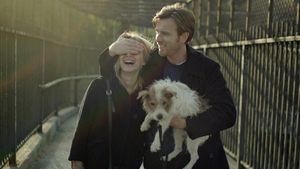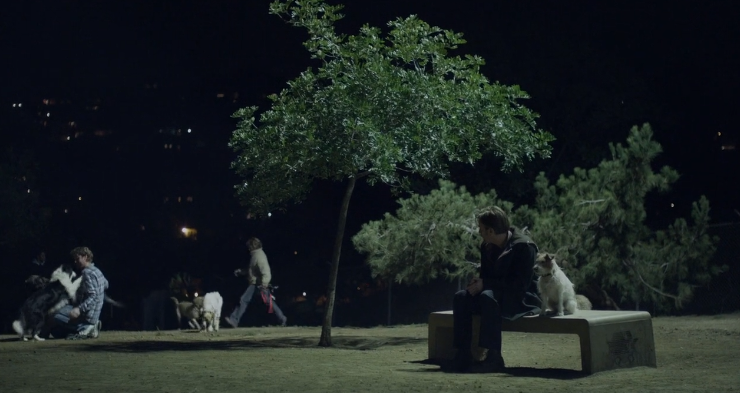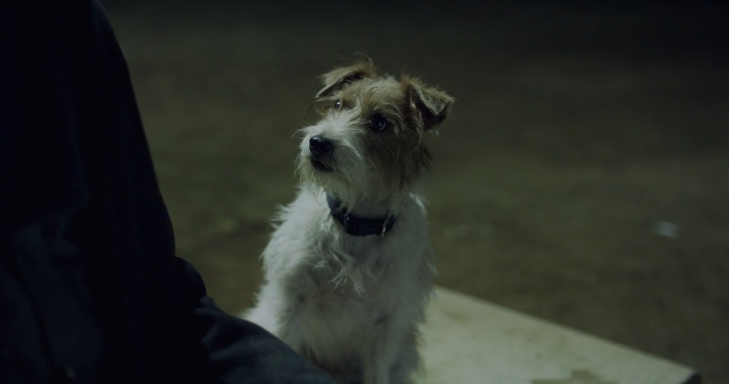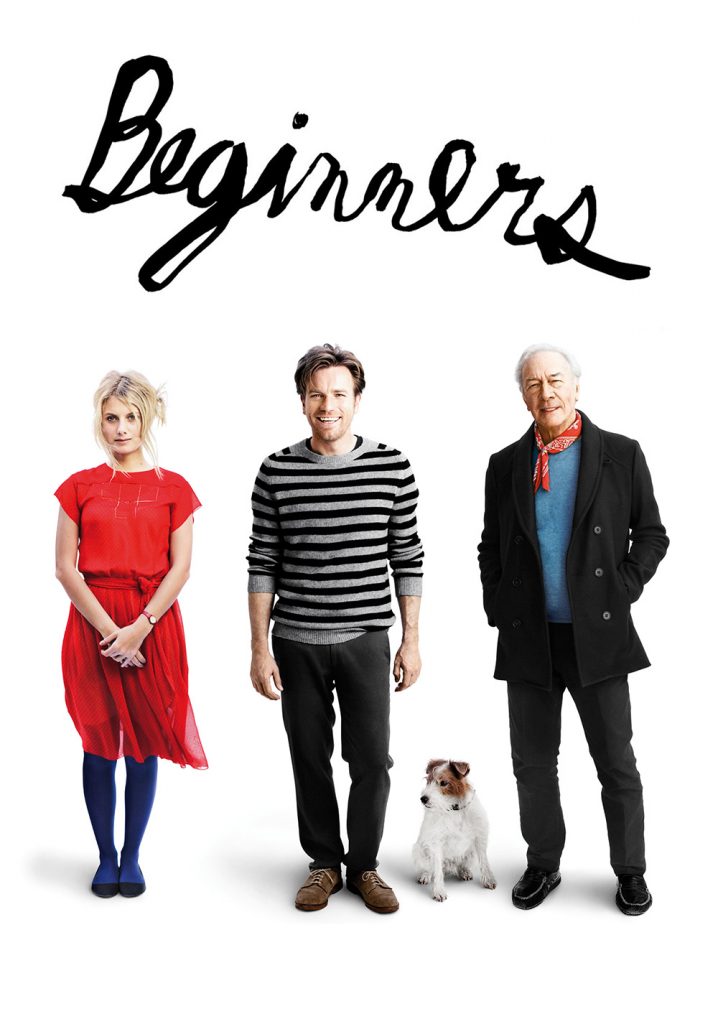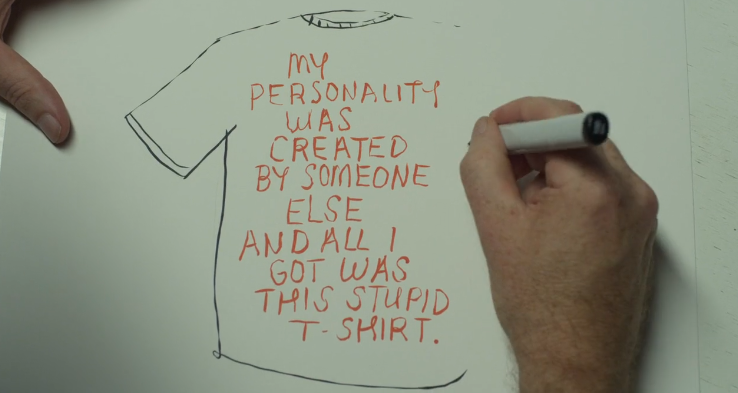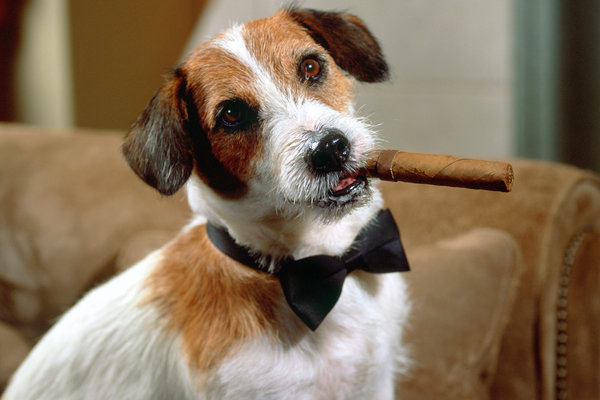Beginners (2010) follows a middle-aged man named Oliver and his father’s dog, Arthur, a Jack Russell Terrier, after his father has passed from cancer. Arthur is portrayed in a very non-animalistic way. He never barks, only really making a sound when he is crying as Oliver tries to leave him at home alone. Arthur just wants to be with Oliver, and although he may not admit it, Oliver needs Arthur with him as well. One of the themes in this film is loneliness and self-isolation. These themes are portrayed through Oliver, and his lover Anna, mentioning abandoning each of their past relationships, and through the death of Oliver’s father that leaves him without a family. Oliver and Arthur offer each other company within their loneliness and self-isolation. Even when they have no one else, they have each other.
This scene begins with a long distance shot of Oliver walking Arthur in a park. The camera cuts to the two of them sitting on a bench with each other. Arthur does not sit on the ground like a regular dog would, but sits next to Oliver on the bench. They create a contrasting image on the screen. The scene is split almost perfectly down the middle, showing the juxtaposition between the left half of the screen taken up by owners and their dogs, and the right half of Oliver and Arthur.
This image reveals how Oliver and Arthur are different from other dogs and their owners. They do not have a typical dog-owner relationship, it is a much deeper bond than playing fetch, doing tricks, and going on walks. They seem to have an understanding of each other that goes beyond Arthur being Oliver’s pet. Oliver even says to Arthur, “Go and have your own experiences with your own people,” to which Arthur stays put. The camera cuts to a closer shot of Oliver and Arthur facing each other on the bench with a few dogs running around behind them. Oliver explains to Arthur that he’s “…a human not a dog,” and elaborates on how the breed of Jack Russell Terriers was invented by man and bred for hunting. Arthur looks both distracted, as he looks around at his surroundings, but at the same time attentive to Oliver, and actually motions closer towards him and sits closer by his side while he speaks. The camera cuts to a close-up of Arthur’s face, to show that he is listening to Oliver.
Oliver then explains Arthur’s breed to him, “You think you are you and want to chase the foxes, but other people planted that in you years ago. And now somewhat arbitrarily you are considered very cute to us humans.” This is an interesting scene because it explains how the human-animal relationship between human beings and Jack Russell Terriers existed from their very beginning. Jack Russell Terriers are essentially man-made dogs for human use. Their instincts are not even their own, they are instincts that man put in them for their own benefit. But, Arthur seems to be resisting this. He does not want to chase foxes, as far as we can tell from his disinterest in dogs, and he wants to sit by Oliver’s side and listen to him. His connection with Oliver is deeper than the instinct to chase, play, and fetch.
This scene is very quiet as there is no music playing in the background, and all we can really hear is Oliver’s voice, emphasizing the words Oliver speaks. Oliver says something that is actually quite meta of the film. When he explains to Arthur that he is now just bred because of his cuteness, he says, “… and we put you in television shows and movies.”
I think this movie is trying to do something different with the Jack Russell Terrier than just portray him for his cuteness or his instinct to hunt. Arthur is a friend to Oliver, and is really the only family that Oliver has. Arthur has also lost Oliver’s father, and it becomes clear that they rely on each other to fill the void that Oliver’s father left. Despite Oliver’s self-isolation in relationships and Arthur’s loneliness from his owner passing away, they have each other, and are able to offer each other their company to get through it.

